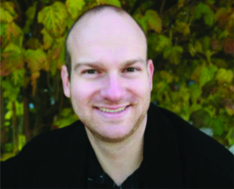Kennedy, Nixon and the Debate of the Century
Allen Pietrobon / Trinity Washington University
Regarding John F. Kennedy’s 1960 election, one historian has written, “It was that first moment in our history when we saw that television can transform a political candidate from a candidate into a celebrity, and it changed the whole contours of our politics.”
Join Professor Allen Pietrobon as he takes us back to the Eisenhower Era, a time before the “celebrity president.” We will examine the lives and backgrounds of John F. Kennedy and Richard Nixon and see how Kennedy became president by dominating the television narrative and using innovative campaign techniques that set the model for presidential election campaigns to this very day. The first-ever televised presidential debate took place in 1960; the result was seen as being so disastrous (for Nixon) that it would be 16 years before presidential candidates agreed to debate live on TV again.
In this presentation, we’ll use the 1960 presidential election as our lens to explore American politics and culture in this pivotal era in history.

Dr. Allen Pietrobon is an Assistant Professor and Program Chair of the Global Affairs department at Trinity Washington University. An award-winning historian and public speaker, Allen specializes in 20th-Century American history and U.S. Foreign Policy, focusing on nuclear weapons policies and Cold War diplomacy. Since 2011, he has also served as an Assistant Director of Research at the Nuclear Studies Institute at American University. His latest book, Norman Cousins: Peacemaker in the Atomic Age, explores the widespread influence that prominent journalist Norman Cousins had on postwar international humanitarian aid, anti-nuclear advocacy, and Cold War diplomacy, including secret diplomatic missions he conducted behind the Iron Curtain.

